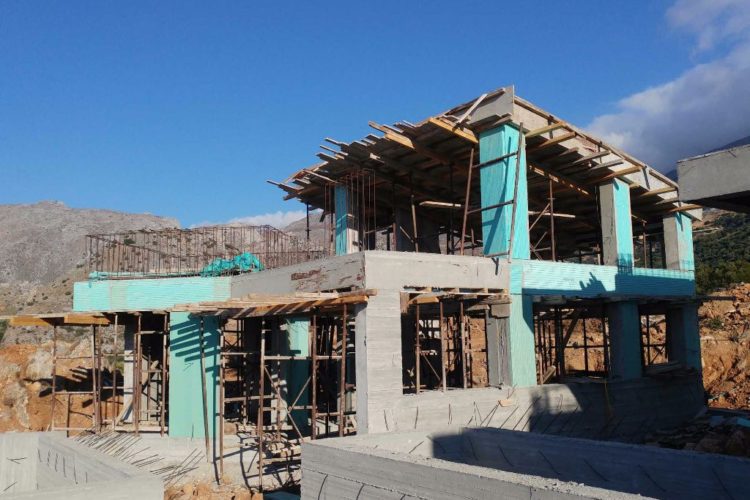Our Blog

ZERO ENERGY CONSUMPTION BUILDINGS IN GREECE SINCE THE 01/01/2020
ZERO ENERGY CONSUMPTION BUILDINGS IN GREECE SINCE THE 01/01/2020
Greece as a member of the EU, follows the European norms and standards regarding every legal aspect and this also includes the building regulations. Since 2010 in order to acquire a building permit for a new building or for a large scale renovation of an existing building, one of the necessary studies that must be executed is the Energy Performance Study, following the standards of the K.EN.AK. (Energy Performance Regulation). The Energy Performance study had to certify that the new residence is of an energy class “B+” or higher.
Since Greece was a country where the buildings were intensively energy consuming, the Energy Performance Study and the new inspection process (where after the completion of the construction an independent Energy Inspector certifies the energy class of the building), changed dramatically the building standards. It was unfortunate that during this period Greece was going through a financial crisis which resulted to very low rhythms of building, so the results of the new building standards are not yet translated to a radical change in the energy consumption of the greek buildings.
Since 01/01/2020, every new building shall be ranked as a “A” or “A+” energy consumption grade, which practically means it shall consume almost zero energy. This regulations seems to aim at the correct direction, however it can create some practical challenges to the owners and engineers.
How will the construction industry practically be affected?
In practice, the most obvious change will be on the construction budget. In order to achieve a zero consumption residential building, it will be necessary not only to increase the insulating properties of the building, but also to install HVAC equipment of higher efficiency (and purchase costs) and most of the times it will also be necessary to install energy producing equipment, like photovoltaic (PV) panels or wind generators.
However the PV panels and wind generators cannot be installed everywhere for practical reasons but also because of limitations by the building regulations. For example within an urban environment, it is not easy to insall wind generators, but it is much easier to install a PV system on the flat roof. Contrariwise, in traditional villages it is not allowed to install neither PV panels on the roof nor wind generators, as it will disturb the traditional architecture of the region.
What shall we expect?
There has been a lot of discussion during the past months regarding this important matter. Engineers , Energy Inspectors and the Technical Chamber of Greece have proposed to pause the regulation, until all the direct and indirect problems are solved. One of the most important arguments is that after the financial crisis where the construction sector was annihilated, a measure like this (which we all agree aims at the correct direction) shall not be implemented in a way that will negatively affect this sensitive and important financial sector. So a rational proposal to the Greek government would be to examine any conflict occured by this regulation and other building regulation and solve it as soon as possible.
According to the European guidelines, every country-member of the European Union must adapt on this regulation for zero consumption buildings until the 01/01/2021. At the moment, every new building permit applied after the 01/01/2020 shall predict with the Energy Performance Study that the building will be of “A” grade or higher (“Α+”).
Update 14-04-2020:
The political leadership of the Ministry of Environment and Energy decided to adopt the proposals of the engineers so that from this year the obligation of the construction of all the new buildings with the energy class A and A + specifications will not be applied. The crucial decision was taken in order not to freeze the construction activities and for this reason the Ministry signed the memorandum of cooperation with the Technical Chamber of Greece (TEE), aiming on the one hand to support the construction industry, which received another blow from the coronavirus pandemic.
Categories
- Uncategorized
- Uncategorized
- Uncategorized
- Uncategorized
- Uncategorized
- Uncategorized
- Uncategorized
- News
- News-el
- Projects
- News-de
- News-ru
- News-it
- News-nb
- News-fr
- Projekte
Recent Posts
- How to Sell Your Property with the Help of a Professional Realtor and How to Choose the Right One?
- SPECIAL SCHEME FOR FOREIGN PENSIONERS MOVING TO GREECE
- A VIEW ON THE REAL ESTATE SECTOR IN GREECE AND CRETE AFTER THE FINANCIAL CRISIS
- THE ADVANTAGES TO LIVE IN CRETE DURING A PERIOD ENERGY CRISIS
- MINIMAL, MODERN & CONTEMPORARY DESIGN